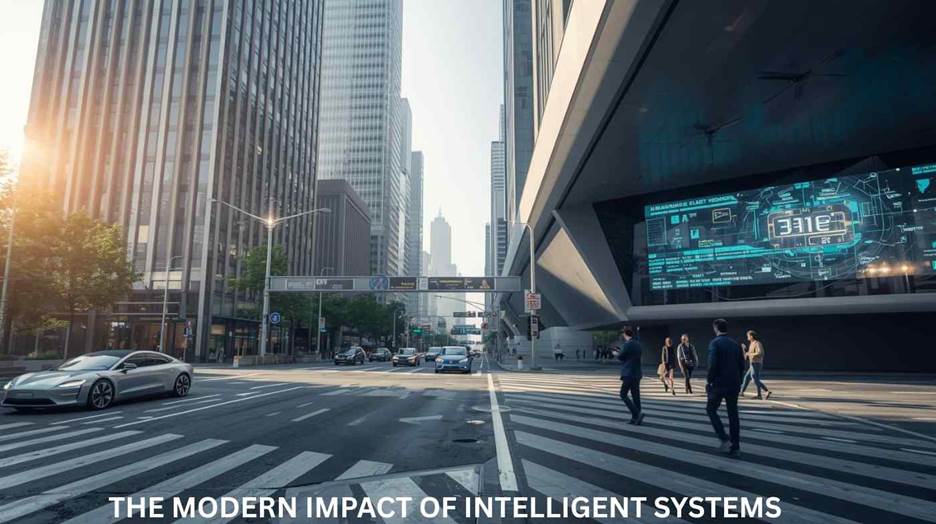In today’s digital world, technology is advancing at a pace never seen before. Among the most impactful innovations shaping our era are Intelligent Systems. These systems are designed to simulate human intelligence, make decisions, and adapt to new environments. They are no longer limited to research laboratories; instead, they have become a central part of industries, homes, and even personal devices. This article explores the role, importance, and applications of Intelligent Systems, along with their potential impact on society.
Table of Contents

Understanding Intelligent Systems
What Are Intelligent Systems?
Intelligent Systems are advanced computational technologies that can process data, learn patterns, and make informed decisions. Unlike traditional systems that rely solely on predefined rules, they can adapt and improve their performance over time. Their foundation lies in fields like artificial intelligence, robotics, data analytics, and machine learning.
Key Features of Intelligent Systems
- Ability to learn from data and experiences
- Flexibility in responding to changing environments
- Decision-making capacity without human intervention
- Continuous improvement through feedback mechanisms
These features make Intelligent Systems highly valuable in problem-solving and innovation across diverse domains.
Applications of Intelligent Systems
Intelligent Systems in Healthcare
One of the most transformative uses of Intelligent Systems is in healthcare. From diagnosing diseases with AI-driven tools to robotic-assisted surgeries, these systems enhance accuracy, reduce human error, and improve patient outcomes. For instance, predictive models can identify potential health risks, enabling early intervention.
Intelligent Systems in Business
Businesses leverage Intelligent Systems for customer service, data management, and operational efficiency. Chatbots, for example, provide round-the-clock customer support, while data-driven insights help organizations make strategic decisions. Supply chains also benefit from real-time tracking and predictive maintenance powered by Intelligent Systems.
Related Article: Blue Prism Process: A Complete Guide to Intelligent Automation for Businesses
Intelligent Systems in Education
Education is another sector revolutionized by Intelligent Systems. Adaptive learning platforms personalize content for each student, ensuring better understanding and engagement. Virtual tutors and AI-based assessment tools provide immediate feedback, making learning more interactive and effective.
Related Article: Cognitive Education: Shaping Minds Through Intelligent Learning
Intelligent Systems in Everyday Life
From smart home assistants to autonomous vehicles, Intelligent Systems are deeply integrated into daily life. Voice-controlled devices simplify household tasks, while self-driving cars represent the next frontier of intelligent mobility. These systems enhance convenience, safety, and efficiency.
Advantages of Intelligent Systems
Enhanced Efficiency
Intelligent Systems streamline processes by automating repetitive tasks, reducing time and cost for organizations.
Better Decision-Making
By analyzing vast datasets, Intelligent Systems provide insights that enable accurate and timely decisions.
Personalization
They adapt to individual preferences, offering personalized solutions in healthcare, education, and consumer products.
Safety and Reliability
In industries like manufacturing and transportation, Intelligent Systems enhance safety by predicting failures and preventing accidents.
Challenges of Intelligent Systems
Ethical Concerns
The rise of Intelligent Systems brings ethical debates. Issues such as privacy, job displacement, and bias in algorithms must be addressed responsibly.
High Implementation Costs
Developing and integrating Intelligent Systems can be expensive, making it difficult for smaller businesses to adopt them.
Dependence on Data
Since Intelligent Systems rely heavily on data, poor-quality or biased data can lead to flawed outcomes.

The Future of Intelligent Systems
Intelligent Systems in Sustainable Development
Intelligent Systems are expected to play a significant role in addressing global challenges such as climate change and resource management. Smart grids, renewable energy forecasting, and sustainable agriculture are areas where they can make a difference.
Intelligent Systems in Global Collaboration
As connectivity grows, Intelligent Systems will foster collaboration between nations, institutions, and industries. This integration can accelerate innovation and create solutions for global challenges like healthcare accessibility and disaster management.
Intelligent Systems and Human-AI Partnership
The future will likely emphasize collaboration rather than replacement. Humans and Intelligent Systems can work together to combine creativity with computational power, leading to groundbreaking innovations.
Conclusion
The world is rapidly moving toward a future shaped by Intelligent Systems. Their applications span healthcare, business, education, and everyday life, demonstrating their transformative potential. While challenges such as ethics, cost, and data dependency exist, the benefits far outweigh the risks when managed wisely. As technology continues to evolve, Intelligent Systems will remain at the forefront of innovation, creating smarter, safer, and more efficient societies.
Pingback: Cognitive Education: Shaping Minds Through Intelligent Learning - Techyways
Pingback: Blue Prism Process: A Complete Guide to Intelligent Automation for Businesses - Techyways
Pingback: Deep Reinforcement Learning in Robotics: Enabling Intelligent Autonomous Systems - Techyways
Pingback: Ethical Issues with Robots: Understanding the Moral Challenges of Intelligent Machines - Techyways